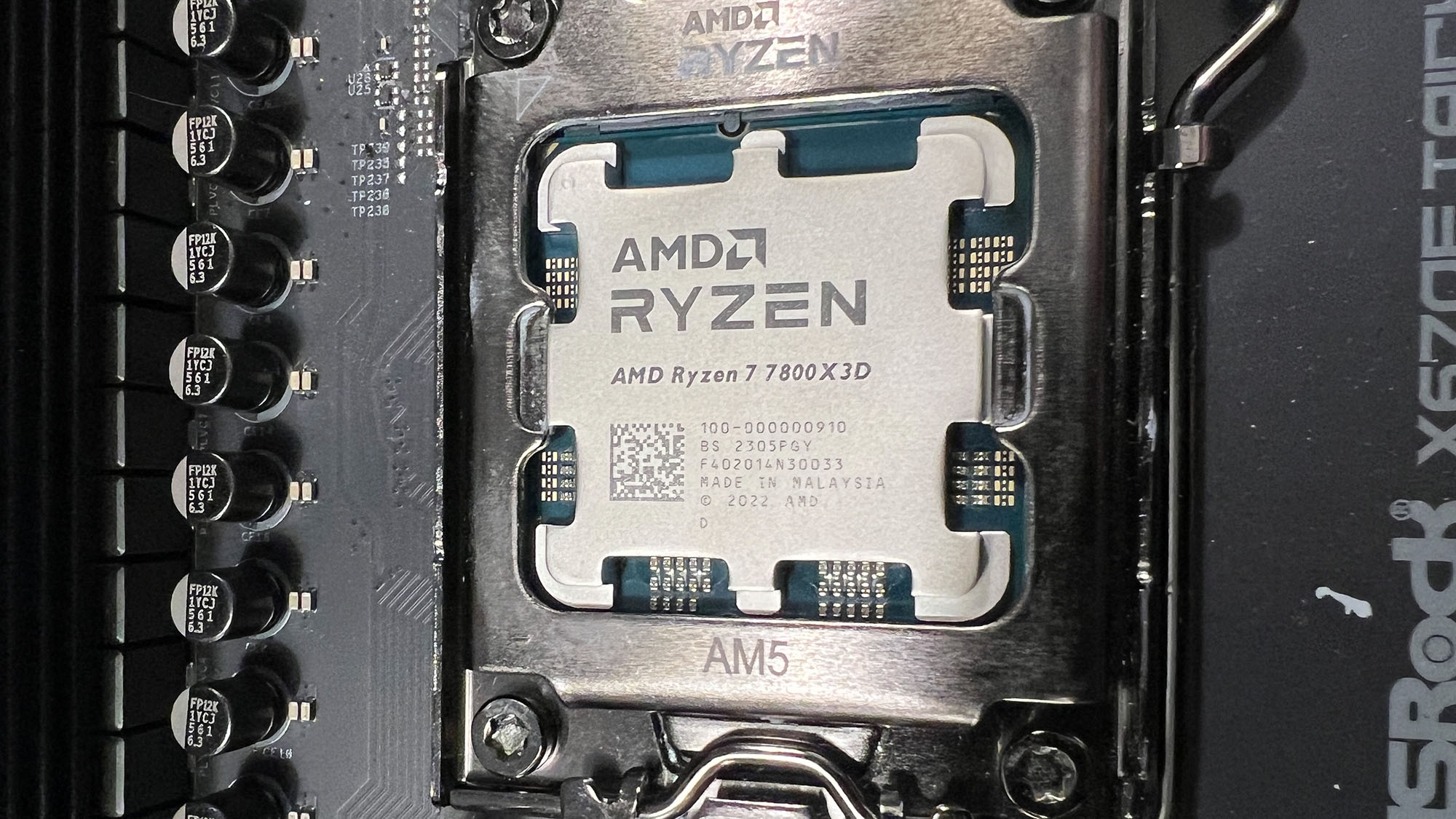Intel’s Core i9-14900K is the flagship CPU of the supposedly imminent Raptor Lake Refresh range, and we’ve just caught sight of a leaked slide that details the gaming performance of the processor.
The slide shared on X (formerly Twitter) by HXL is purportedly direct from Intel and is part of the marketing materials around the 14th-gen launch (add your own seasoning as ever with leaks like this).
Intel official 14900K vs 7950X3D gaming performance slides.+Metro ExodusStarfieldTotal War: WARHAMMERAshes of the SingularityCS:GO-Dota2FortniteCyberpunk 2077League of LegendsHorizon Zero Dawn pic.twitter.com/N6v78zA2C4October 10, 2023
It compares the Core i9-14900K to AMD’s Ryzen 9 7950X3D, so it’s a battle of the flagships across a whole bunch of PC games, 25 of them in total. Intel selected 1080p resolution at high details to ensure the processor takes as much strain as it can (with higher resolutions, the GPU steps in to bear more of the workload).
As to the winner, it’s the 14900K that comes out on top with 14 of the game benchmarks, with the 7950X3D triumphing in 10 – the remaining game is a draw where both CPUs offer equal frame rates.
The big wins for Intel included Metro Exodus and Starfield, both of which exhibited 23% better performance than the AMD flagship.
Total War: Warhammer was a similarly impressive 22% victory for Intel, with Ashes of The Singularity up 15%, and CS:GO at 14%. Other wins were slightly more modest (single-digit) affairs for Intel, and AMD did take the crown in a fair few games as noted, though only by a fair distance in a trio of titles. Those were Cyberpunk 2077 (where the Intel CPU was 89% as fast as the 7950X3D), Fortnite (82%), and DOTA 2 (77%).
The overall result was Intel’s Core i9-14900K being 2.5% quicker than the Ryzen 9 7950X3D.
Analysis: If we’re talking gaming, what about the 7800X3D?
A margin of 2.5% doesn’t sound like a lot, but it’s certainly a victory for Intel, in terms of being quicker in a greater number of games, and having more of those bigger wins, too. Depending on the game you’re playing – as ever – the difference could be a fair whack, and you’re more likely to see markedly better performance with the Raptor Lake Refresh flagship processor. If these results hold up more broadly, of course, come review and release time.
Naturally, there are some caveats here, the first being that as always with this kind of marketing slides, we need to take them with some caution. Bias in cherry-picking game benchmarks is inevitable – with any company, not just Intel – though to be fair to Team Blue, it seems like an overall reasonable comparison (AMD does achieve a number of wins, after all, so it’s not like Intel dumped any game Team Red did well in).
Also, we don’t know the configuration of the test PCs used, either, which could have something of a bearing on the results.
Next up, while the comparison between two top dog CPUs is obviously valid in terms of pitting one flagship against another, for gamers, there’s a wrinkle here, and it’s called the Ryzen 7 7800X3D.

Purely for gaming performance, the 7800X3D gets very close to the 7950X3D (mostly), and due to the latter’s design (two CCDs, one with 3D V-Cache, one without), there are even some issues with certain games being a bit slower with the 7950X3D. (Those can be worked around in large part, admittedly, but it’s a bit of extra hassle).
The broad point is that the 7800X3D is an equally compelling option as the 7950X3D for gamers in many ways, and price-wise, the 14900K won’t remotely compete in a head-to-head gaming battle with that CPU. Yes, there are going to be benefits for the Intel chip outside of gaming, for sure, so it does depend on your own personal use case – that goes for the 7950X3D too – but for gaming only, the 7800X3D is a tough customer to beat. Especially at the prices it has been reduced to of late, which frankly represent ridiculously good value.
The other thing to mention here is that we’re expecting the 14900K to be a bit of a power-guzzler, at least if the rumors are right. While Raptor Lake Refresh does usher in efficiency improvements over Raptor Lake, the theory is Intel has more than spent those advancements on pushing clocks to achieve a suitably fast enough gen-on-gen performance gain.
So, while there are a bunch of potential catches here, this Intel leak does paint a more compelling picture for the 14900K than we expected in gaming. For those not just purely interested in gaming, the Raptor Lake Refresh flagship could represent a compelling option that has the raw grunt to deal well with heavyweight tasks, as well as putting in an excellent gaming performance, too.
What’s also going to be very interesting is to see the 14700K, as it’s the only 14th-gen CPU rumored to get more cores added, so it could be a very tempting upgrade to the 13700K, which it should be noted is currently top of our best processors list. Naturally, pricing for the 14700K, and the 14900K along with other Raptor Lake Refresh chips, will be key as to how they compare to Intel’s previous generation, and AMD’s line-up.
You might also like
from TechRadar: computing components news https://ift.tt/UmsWgib
via IFTTT
No comments:
Post a Comment